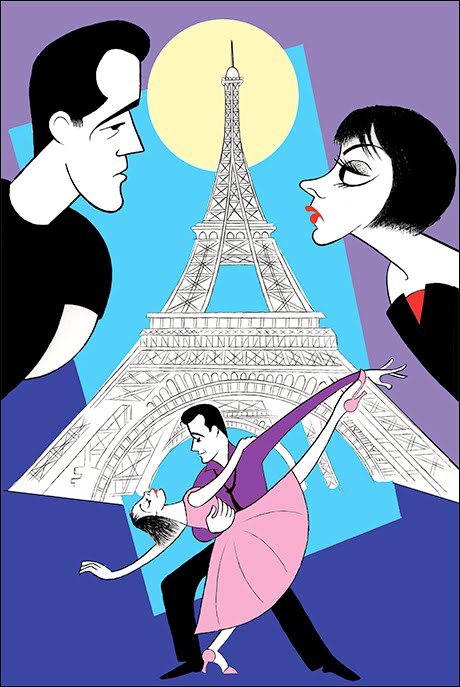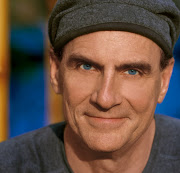
Under other circumstances, when Russell Armstrong was
found hanging by an electrical cord in his room this week, it may not have been newsworthy to anyone other than his family and close friends. But Armstrong’s death made national news, largely because he is the husband of Taylor Armstrong (above, with Russell and their daughter), one of the featured players on the Bravo network’s “Real Housewives of Beverly Hills,” a (sort-of) reality program that builds on the franchise previously established in cities including Atlanta, Orange County, New York and New Jersey. These programs focus on the day-to-day lives of a group of upper middle-class women who are either friends or related. For some of us, the “Housewives” productions are mere guilty pleasures. For Armstrong, one might say it was a death sentence.
The husbands in these programs are usually relegated to sub plots or background stories. Armstrong’s place in the Beverly Hills edition was never quite clear. He agreed to be seen on camera, often in a most unflattering light. His rigid, rather lifeless persona served mostly to highlight the troubled marriage he shared with Taylor. To say he was an ancillary character in the show would be an overstatement of his role.

So, Armstrong’s death would be just a quirky TV meets real life human interest story if it were not for the fact that he is just the latest in a growing list of reality TV casualties. Beset by his marital woes, accusations of physical spousal abuse and reported mounting financial difficulties, Russell checked out in a way that Bravo may build into this season’s show.
Armstrong’s death, while not predictable, is problematic in that it showcases how supposed entertainment media and real life are crashing into one another in a lethal fashion. It began with Jenny Jones – remember her? The vacuous television talk show host presented an hour in 1995 about “secret crushes.” The premise was that someone would come on the show to find out who had a secret crush on them. In this case, a young man named
Johnathan Schmitz found out that his admirer was none other than another man, named Scott Amedure. It made for a mildly entertaining hour of embarrassment, blushing and awkwardness when the apparently heterosexual Schmitz had to react in front of a studio audience. To make a long, sordid story too short, later that night, a humiliated Schmitz murdered Amedure.
Amedure's death is not an isolated incident. In 2000,
Ralf Panitz was convicted of murdering his ex-wife, Nancy Campbell-Panitz after the two had a particularly ugly confrontation on “The Jerry Springer Show.” In 2003 MTV’s “The Real World” was rocked by a
rape charge from one housemate made against another. In 2009, the UK version of “Big Brother” included a house resident named Sree Dasari, who
slashed his wrists after being mocked and cast out of the Big Brother House. In two separate incidents, participants in Chef Gordon Ramsey’s “Kitchen Nightmares” committed suicide, each within a year after appearing on the show.

The list of reality TV tragedies goes on and continues to grow. The important social question is, how far is too far in commercial entertainment, and should someone be regulating the reality TV genre? And if the answer to the latter question is “yes,” who should be assigned that responsibility other than the production companies and networks whose primary goal is commercial gain? Further, why is it that the exploitation of personal interaction on these shows always seems to be based on humiliating someone? Dating shows (e.g. “The Bachelor,” etc.) create their drama by “eliminating” potential suitors. Physical competition shows (e.g. “Survivor”) rely on exploitation of individual physical and mental weakness. Cohabitation shows (e.g. “Big Brother,” “The Real World”) draw viewers in by highlighting character and personality flaws, such as addictions, sexuality issues and cultural naivete. Contestants or participants in many of these shows are clearly selected based on their inabilities, rather than their strengths.
Does commercial television have an ethical responsibility to
not do this? You could make an argument either way, but when people are dying because of media’s misuse of the free enterprise system, then it would seem only logical that ethics should kick in.

Remember way back in the 1990s when Oprah Winfrey decided to turn her back on the Jenny Jones/Geraldo Rivera/Jerry Springer trash talk show genre and focus on entertainment and personal growth programming? It worked – she made a LOT of money and kept her audience for a quarter century. She proved one can do good and do well all at the same time.
Could a stronger ethical construct on the part of Bravo have saved Russell Armstrong? Perhaps. In an interview with PEOPLE Magazine just weeks before his death, Armstrong said, "It got really overwhelming. When you get a TV show involved and all the pressure, it just takes it to a whole new level. … We were pushed to extremes.” After learning of her son's suicide, Armstrong's mother, John Ann Hotchikiss told HLN's Jane Velez Mitchell, “Before the new season even started, before he took his life, he said, ‘Mom, they’re just going to crucify me this season.' He said, ‘I don’t know what to do. I’ll never survive it.’”
Does any of this make Bravo culpable in Armstrong’s death? Legally, probably not. Back in 1999 a jury awarded Scott Amedure’s family $25 million, after they sued the Jenny Jones show for negligence. But the verdict was later overturned on appeal. But ethically? Bravo would be hard pressed to argue the network did not play a role. When people leading private lives are suddenly thrust into the public spotlight in the most unflattering way possible by manipulative media organizations that know exactly what they’re doing – well, you be the judge.

If the reality TV trend is now socially out of control, it may be that same free enterprise system that neutralizes it. For years the word has been that producing a reality show is so much less expensive than producing a regular television scripted drama. In some cases it was reported that reality TV shows were produced for as little as $300,000 an episode, while a nighttime drama can cost upwards of $2 -3 million. That’s changing. Now that reality stars are becoming celebrities in their own right, they are demanding higher and higher salaries. Think “The Situation” on “Jersey Shore, now reportedly earning
$100,000 per episode. As their asking prices skyrocket, the industry may realize reality TV shows and their stars are not worth the bad publicity generated by, say, one Russell Armstrong suicide. Stay tuned.
 It is unfortunate that every time someone mentions the Twin Towers of the World Trade Center, it conjures treacherous, deadly images in each of us. The truth is that long before 9/11/2001 the Towers played a huge role in American culture. Where better to view that role than in American movies? In anticipation of the 10-year-anniversary of 9/11, Dan Meth, a cartoonist and director from New York put together a montage of most of the movies in which the Towers appeared. Here’s what Meth says about this effort: “From 1969 to 2001, the Twin Towers made countless cameos in Hollywood films. Sometimes featured prominently in the foreground, sometimes lurking in the distance. This montage celebrates the towers’ all-too-short film career with songs that capture the passing decades. Man, I miss them.”
It is unfortunate that every time someone mentions the Twin Towers of the World Trade Center, it conjures treacherous, deadly images in each of us. The truth is that long before 9/11/2001 the Towers played a huge role in American culture. Where better to view that role than in American movies? In anticipation of the 10-year-anniversary of 9/11, Dan Meth, a cartoonist and director from New York put together a montage of most of the movies in which the Towers appeared. Here’s what Meth says about this effort: “From 1969 to 2001, the Twin Towers made countless cameos in Hollywood films. Sometimes featured prominently in the foreground, sometimes lurking in the distance. This montage celebrates the towers’ all-too-short film career with songs that capture the passing decades. Man, I miss them.”






















